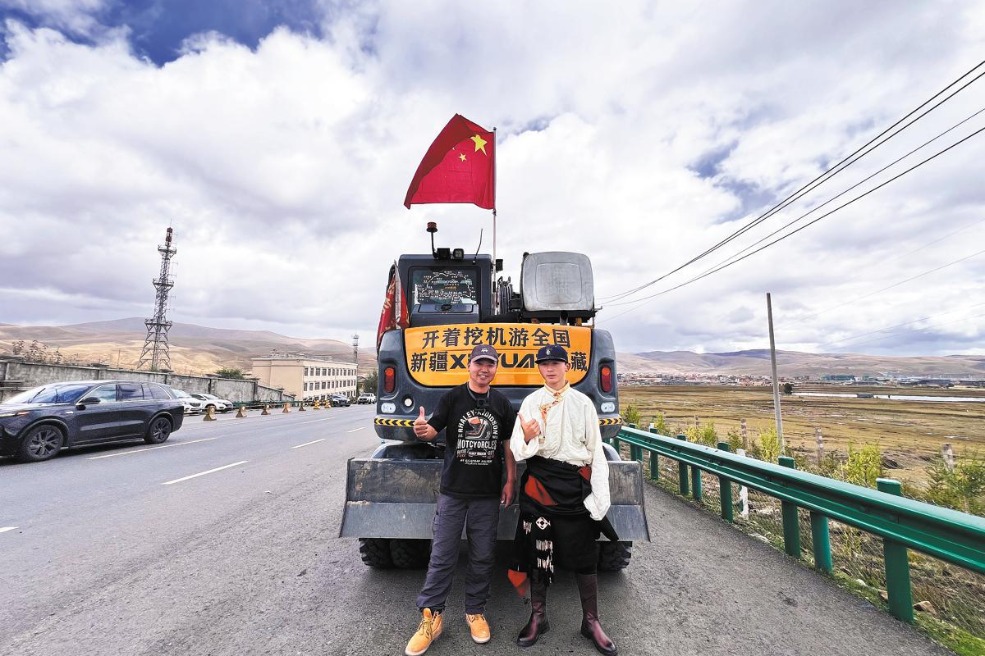Fresh push for global clean-energy smart grid first proposed by China

An international NGO from China has called for accelerated construction of a globally interconnected smart grid of clean energy to help address the climate crisis caused by extensive use of fossil fuels.
Liu Zhenya, chairman of the Global Energy Interconnection Development and Cooperation Organization, made the call while addressing the International Forum on Tackling Climate and Environmental Crisis in Beijing on Tuesday.
"The extensive development and use of fossil fuels is the root cause of the climate crisis," he said. "The fundamental way to tackle the crisis is to accelerate clean development and achieve all-around decarbonization of the energy system."
Liu said a viable solution to realizing all-around decarbonization is to build the Global Energy Interconnection proposed by China five years ago, which could facilitate the transition from an approach dominated by fossil fuels to one reliant on clean energy.
The Global Energy Interconnection would be a globally interconnected smart grid with an ultrahigh voltage grid as the backbone, which could serve as a platform for development, deployment and utilization of clean energy worldwide.
Calculations show that the marginal abatement cost, which measures the cost of reducing pollution by one unit, for carbon emission reduction is only about $15 a metric ton, which is far less than for other solutions. "It has marked advantages," Liu said.
More than 400 people from government, institutions, enterprises and universities in over 40 countries participated in the forum. While some joined the conference in Beijing, others participated online.
Liu Zhenmin, UN undersecretary-general for economic and social affairs, said almost five years have passed since the UN 2030 Agenda for Sustainable Development and the Paris agreement on climate change were adopted by world leaders.
But he said "we are not on track" to meeting many of the sustainable development goals — "including those on eradicating poverty and conserving nature, as well as to keep the global temperature rise within 1.5 C above preindustrial levels".
"Indeed, we are on a dangerous trajectory, with only a short window to tackle this climate crisis," Liu said. "Without prompt action, climate change will become irreversible, and the loss of biodiversity can push us beyond a 'tipping point' of no recovery. These repercussions will spare no one."
He said accelerating energy decarbonization, with universal access, is critical for realizing the targets of the 2030 Agenda and the Paris agreement, and clean-energy transitions must be accelerated to achieve net-zero emissions by 2050.
"I commend GEIDCO for its tireless efforts to enhance cross-border interconnection and drive innovation," Liu said. "Such efforts can speed up global energy transformation. They can help nations to get affordable clean and reliable energy — with many positive benefits for their populations and natural systems."
The Global Energy Interconnection initiative "is a global solution to promote energy transition, fight against climate change and facilitate sustainable development, thus providing an innovative path for a world win-win solution for the crisis", Guinean President Alpha Conde said.
Africa's environment is fragile and its energy demand is increasing rapidly, he said, making it necessary to accelerate African energy interconnection in a clean and green way.
- Train attendants gear up for Spring Festival travel rush
- World's largest pile-driving vessel delivered in East China
- China to have national data infrastructure in place by 2029
- Top court pledges punishment of unfair competition, monopoly in high-tech fields
- China launches communications center to spotlight wild tiger, leopard protection
- China launches test satellite for orbital refueling





































